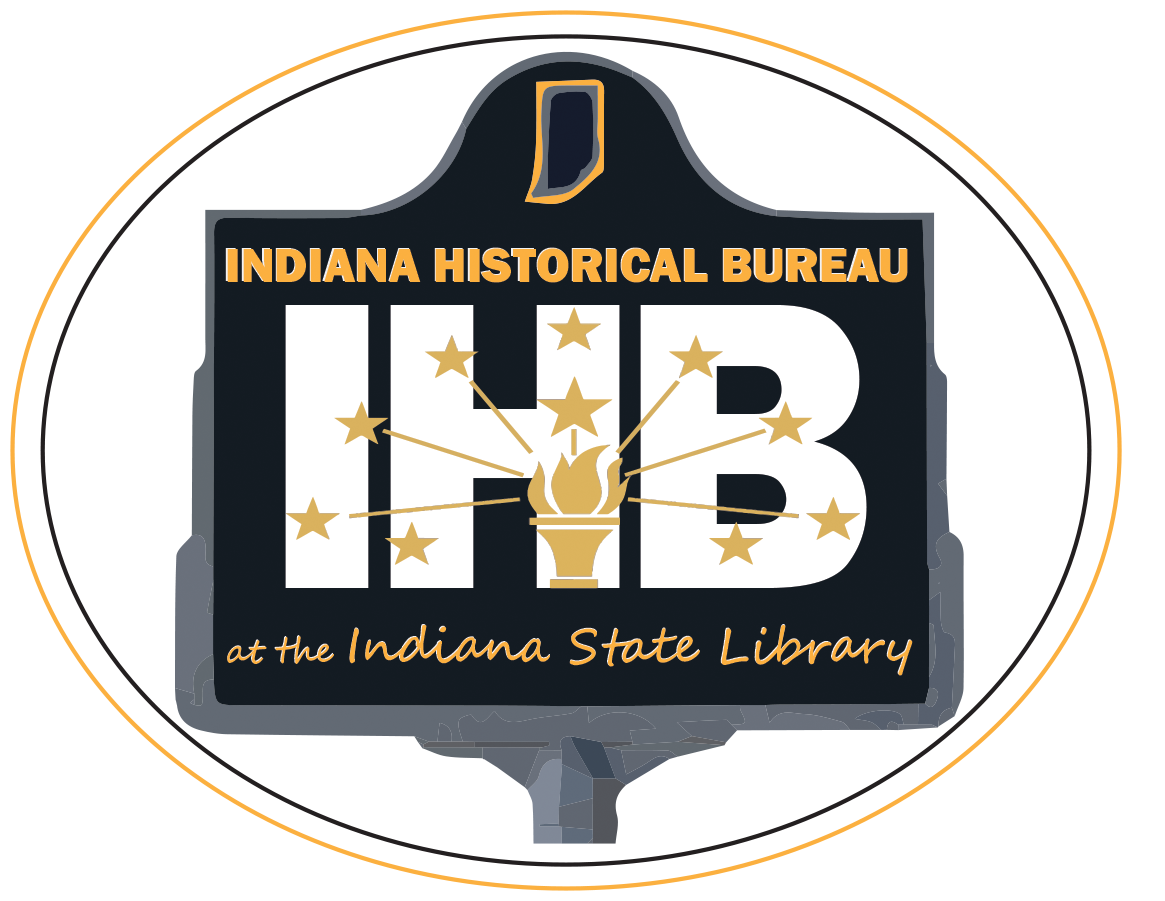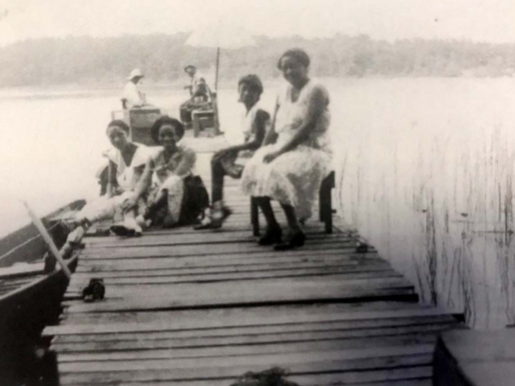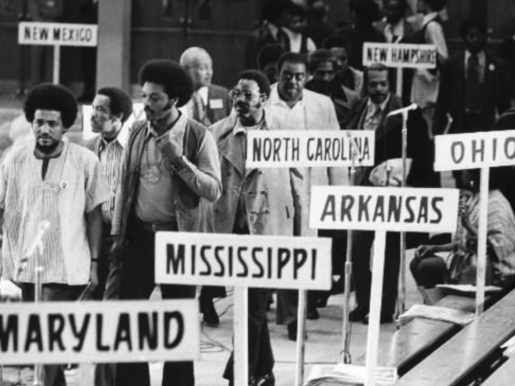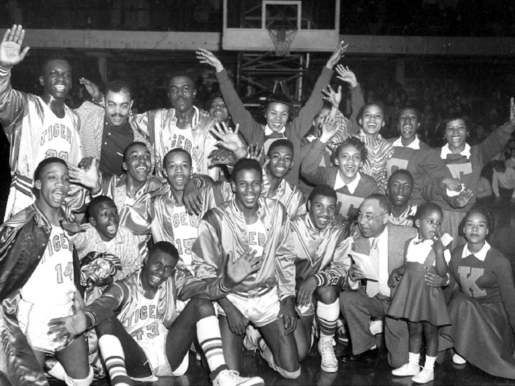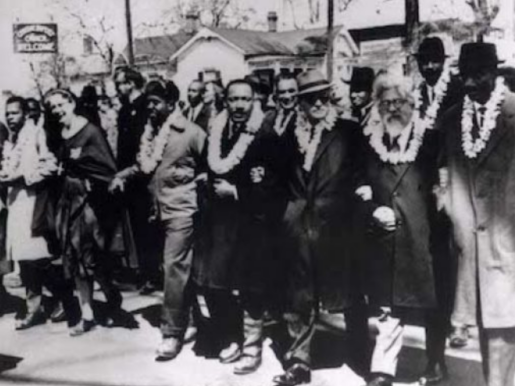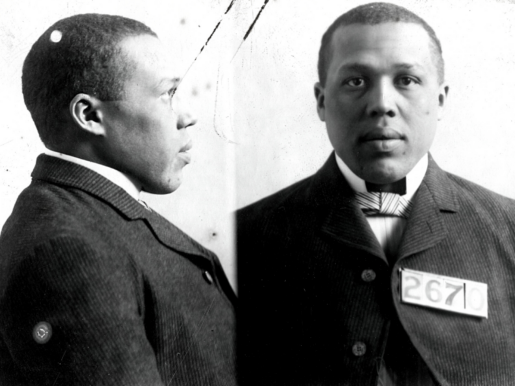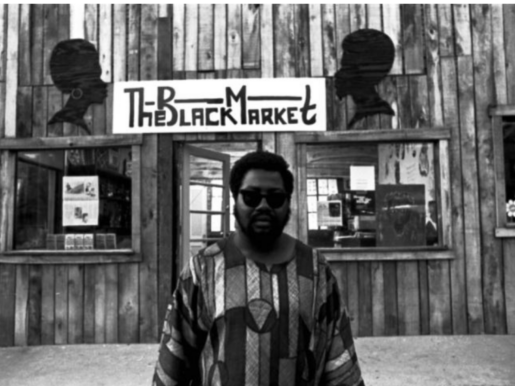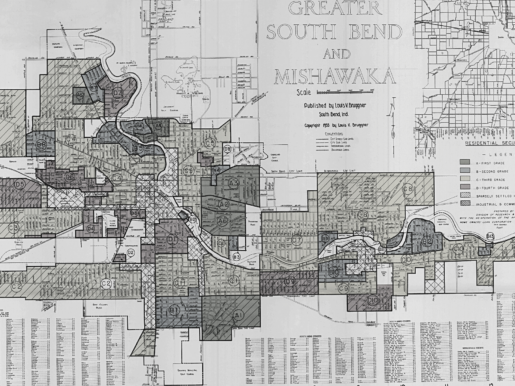“Where Are My People to Go?:” Violence and Resilience in West Baden
Transcript for episode 7 of the 2024/2025 season of Talking…
A Joyous Resistance: Fox Lake and Black Community Building
Fox Lake Resort provided Black Midwesterners with a refuge from the daily reality of living in a country gripped by Jim Crow. In this episode, we explore how Fox Lakers built their community and how they now are working to preserve it.
Lesson Plan: “Tribe Come Home:” The 1972 National Black Political Convention
The 1972 National Black Political Convention, held in Gary, Indiana, brought together Black Americans of all walks of life for the common goal of forging bonds that would, hopefully, lead to meaningful change in the United States. In this episode, students will learn about the convention’s goals, attendees, and accomplishments.
Giving Voice: Rosemary Anderson Davis (Crispus Attucks)
Transcript for Giving Voice: Rosemary Anderson Davis Jump to Show…
Crispus Attucks: Challenging Segregation On and Off the Court
In this episode, we explore how Crispus Attucks High School went from being excluded from the Indiana High School Athletics Association to being the first all-Black school to win a high school state basketball championship in the nation.
“I Did Not Walk Alone:” The Civil Rights Work of Rabbi Maurice Davis
In 1965, at the height of the Civil Rights Movement, Reverend Dr. Martin Luther King, Jr. called for religious leaders representing all faiths to join him in Selma, Alabama, for a march responding to recent violence against peaceful protestors. Rabbi Maurice Davis of the Indianapolis Hebrew Congregation (IHC) answered this call, despite threats to his life. This episode looks at the work of Rabbi Davis to fight segregation and discrimination in Indianapolis, especially in housing and employment. It also considers why Jewish Americans joined the Black-led Civil Rights Movement in greater numbers than other groups and what lessons his work teaches us today about allyship and interfaith work for greater rights for all Americans.
“Tribe Come Home:” The 1972 National Black Political Convention
Thousands of Black Americans from around the country came to Gary, Indiana, for the 1972 Black National Political Convention to transform the Black Power Movement into the Black Political Power Movement. Leaders worked to channel collective outrage – caused by voter suppression and discrimination, as well as the assassinations of major Civil Rights leaders – into political reform.
Rufus Cantrell: King of Ghouls
Rufus Cantrell was a lot of things in his life: A driver. A porter. A clerk. An undertaker. In 1902, he added a new title to that list: The King of Ghouls. Cantrell, along with approximately seven other men, ran one of the most successful body-snatching syndicates in the city of Indianapolis. This is the story of his downfall.
The Black Market Firebombing
On December 26, 1968, the quiet was ripped away from Bloomington, Indiana when a Molotov Cocktail was thrown through the window of a small shop on the corner of Kirkwood Avenue and Dunn Street. But this was no random act of violence – it was a targeted attack. On this episode, we discuss the revolutionary spirit of 1968 on Indiana University’s campus, the racist backlash, and the repercussions that continue to echo from that backlash.
From Redlining to Better Homes: The Better Homes of South Bend Housing Cooperative
In 1952, 22 families in South Bend, Indiana came together to combat the racist exclusionary practices that were widespread in American cities throughout the 20th century. In this episode, we examine the institutions and policies that led to those exclusionary practices and follow those families who defied them.
